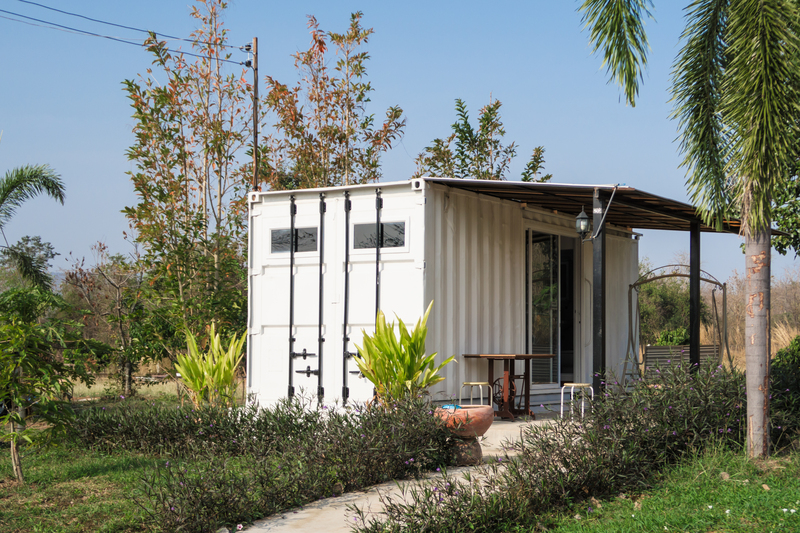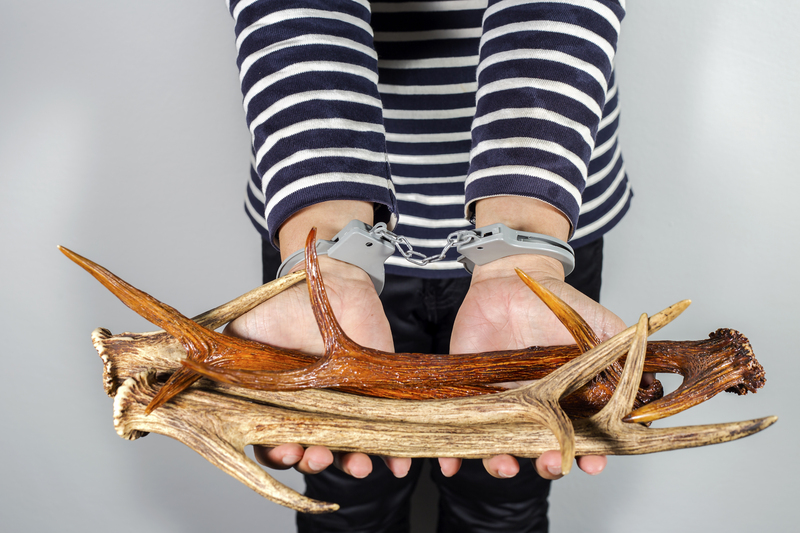The Ultimate Guide to Recycling Metal Pots and Pans
Did you know that your old metal pots and pans can be recycled rather than thrown away? Whether your cookware is warped, scratched, or simply outlived its use, recycling is the eco-friendly way to dispose of them. This comprehensive guide to recycling metal cookware explains everything you need to know about recycling kitchen pots and pans, the environmental benefits, and the step-by-step process of ensuring you're doing it right.
Why Recycle Old Metal Pots and Pans?
The impact of recycling metal pots and pans extends far beyond your kitchen drawer. Metals like stainless steel, aluminum, and copper are widely used in cookware due to their durability and heat-conducting properties. However, these same features make their disposal a potential environmental issue if mismanaged.
- Landfill Reduction: Metal waste does not decompose, contributing to landfill overload.
- Resource Conservation: Recycling metal uses less energy than creating new products from raw materials.
- Pollution Prevention: Prevents hazardous metals from leaching into soil and water.
- Economic Benefits: Less energy and fewer resources needed for recycled metals translate to lower costs for manufacturers and consumers.
Did You Know?
Recycling aluminum saves up to 95% of the energy required to produce it from raw materials. That's why metal cookware recycling is so important for sustainability!

What Types of Metal Cookware Can Be Recycled?
Before sending items to the recycling center, it's essential to determine if your cookware is recyclable.
- Stainless Steel Pots and Pans: Highly recyclable, often accepted at scrap metal yards.
- Aluminum Cookware: Lightweight and valuable, accepted at most recycling facilities.
- Copper Pots and Pans: In demand for its high value when recycled.
- Cast Iron Skillets and Dutch Ovens: Extremely durable, accepted at metal recyclers.
However, non-metallic parts, like plastic handles or glass lids, must be removed before recycling. In some cases, heavily non-stick-coated pans, ceramic, or Teflon-coated pans may not be accepted.
What About Non-Stick or Coated Pans?
Cookware with coatings such as Teflon or ceramic can be difficult to recycle due to chemical treatments. Some centers may accept them if you remove any plastic or silicone, but always check first with your local recycling program.
Where to Recycle Old Pots and Pans
Finding the right location to recycle your unwanted metal cookware is crucial for proper disposal.
1. Scrap Metal Yards
Most scrap metal yards happily accept old pots and pans, as the metals can be melted down and reused. Stainless steel and aluminum are especially popular at these facilities.
2. Municipal Recycling Programs
Many curbside recycling programs have provisions for metal recycling, although some restrict the types or sizes of accepted items. Always consult with your city's waste management facility for detailed guidance regarding recycling kitchen cookware.
3. Specialty Recycling Drop-Off Locations
Some regions offer collection points specifically for household goods, including metal cooking pots and pans. These points may operate as local recycling events, or be located at community centers.
4. Donation Centers
If your cookware is still in usable condition, consider donating to:
- Charity shops
- Community kitchens
- Homeless shelters
- Thrift stores
Donating extends the life of your pots and pans and supports your local community!
How to Prepare Your Metal Pots and Pans for Recycling
Prepping your items ensures a smoother recycling process.
Step-by-Step Guide
- Clean Thoroughly: Remove all food residue, grease, and debris. Most recycling centers require items to be clean for processing.
- Detach Non-Metal Components: Remove plastic handles, rubber grips, lids, and any non-metal attachments, as these may hinder recycling.
- Sort By Type of Metal: If possible, separate aluminum, stainless steel, copper, and cast iron for higher recycling efficiency.
- Transport Safely: Stack or bundle loose pieces together to avoid damage or injury during transport to the recycling center.
Pro Tip:
Check your cookware with a magnet. Magnetic pans are usually steel or cast iron, while non-magnetic ones are likely aluminum or copper.
Common Questions About Recycling Metal Cookware
Can I Put Pots and Pans in the Curbside Recycling Bin?
It depends on your local program. Most curbside bins don't accept large metal items. Always confirm with your waste management provider before making a drop-off.
Does the Condition of the Pot or Pan Matter?
No--the condition doesn't matter for recycling, as all metals are melted down for reuse. Flaking, scratched, or dented cookware can still be valuable at a scrap metal recycling facility.
What Should I Do With Non-Stick, Teflon-Coated Cookware?
Non-stick coatings make recycling more complicated. Some scrap yards accept these after plastic handles are removed. If not, try donating for reuse or look for specialized recycling centers that accept non-stick pans.
Are There Alternatives to Recycling?
- Repurpose: Turn old pans into planters, storage holders, or even creative art projects.
- Upcycle: Use pans in the garden or as bird feeders.
- Resell: Vintage or unique cookware may have value for collectors or thrift shoppers.
Environmental Benefits of Recycling Pots and Pans
Why does eco-friendly disposal of metal cookware matter? By recycling old pots and pans, you help:
- Reduce landfill waste: Metal doesn't decompose, so recycling cuts down on unnecessary landfill accumulation.
- Save energy: Recycling metal uses significantly less energy than extracting and processing virgin ore.
- Conserve natural resources: Every pot or pan recycled means less mining and less environmental disruption.
- Lower carbon emissions: Reduced manufacturing and transport needs mean fewer greenhouse gases released.
Fact:
More than 80% of items placed in landfills can be recycled or composted. Pots and pans are one of the easiest items to process, making them a no-brainer for sustainable living.
Creative Recycling Ideas for Metal Pots and Pans
If you're interested in giving your old pots and pans a second life beyond recycling, consider these creative options:
- Planters: Drill drain holes in the bottom and fill with soil for quirky garden decor.
- Bird Baths: Turn large fry pans or woks into bird baths.
- Wall Art: Arrange different shapes and sizes as decorative kitchen wall art.
- Tool or Utensil Holders: Clean out-an-use deeper pots for stylish storage.
- Candle Holders: Small pans can become rustic candle displays for your home or garden.
Remember, reusing and upcycling are just as important as recycling!
Metal Recycling: Myths and Facts
- Myth: You can't recycle cookware with plastic handles.
Fact: As long as the handles are removed, the metal parts can be recycled. - Myth: Heavily used or rusty pans cannot be recycled.
Fact: Condition does not affect the recyclability of metal pots and pans. - Myth: You need to disassemble every little part.
Fact: Most recyclers just need big plastic and rubber parts removed; small metal screws can stay.

Steps to Finding a Local Metal Cookware Recycling Service
- Check Local Guidelines:
Look up your city's sanitation website for rules on recycling kitchen pots and pans. - Use Recycling Locators:
Try websites such as Earth911.org or RecycleNation.com to find the nearest drop-off. - Contact Scrap Yards:
Call local scrap metal recyclers and inquire if they accept old cookware. - Ask Specialty Stores:
Some kitchenware shops or hardware stores offer take-back programs.
Conclusion: The Best Way to Recycle Old Pots and Pans
Recycling metal pots and pans is one of the simplest ways to support a sustainable future. With a little effort, you can keep valuable materials out of the landfill, conserve energy, and help the environment. Follow the steps in this complete guide to recycling metal cookware to ensure your kitchen clean-out is as green as possible.
- Clean and prepare your cookware.
- Remove non-metal parts.
- Find the right recycling center or donation location.
- Consider repurposing before recycling.
By making eco-friendly choices with your old pots and pans, you're contributing to a cleaner planet--one kitchen at a time.
Ready to get started? Check with your local recycling program today and give your metal pots and pans a new--and greener--life!